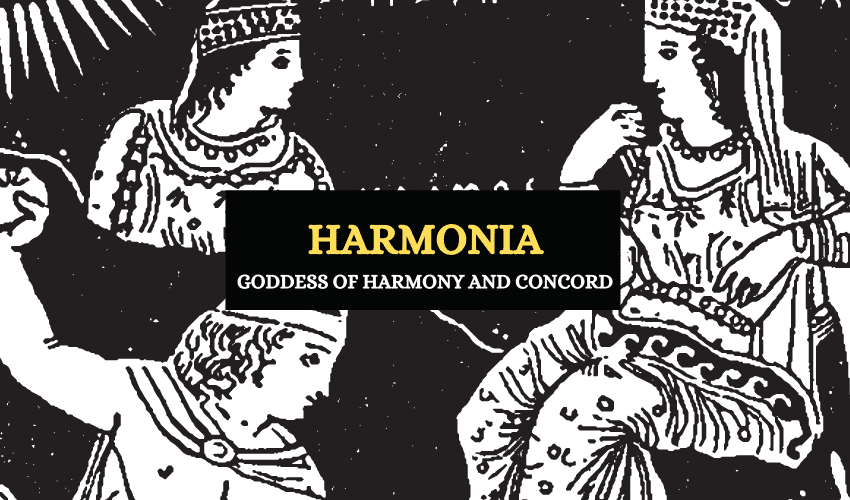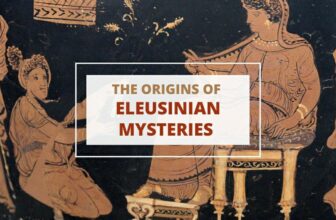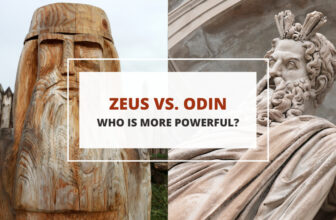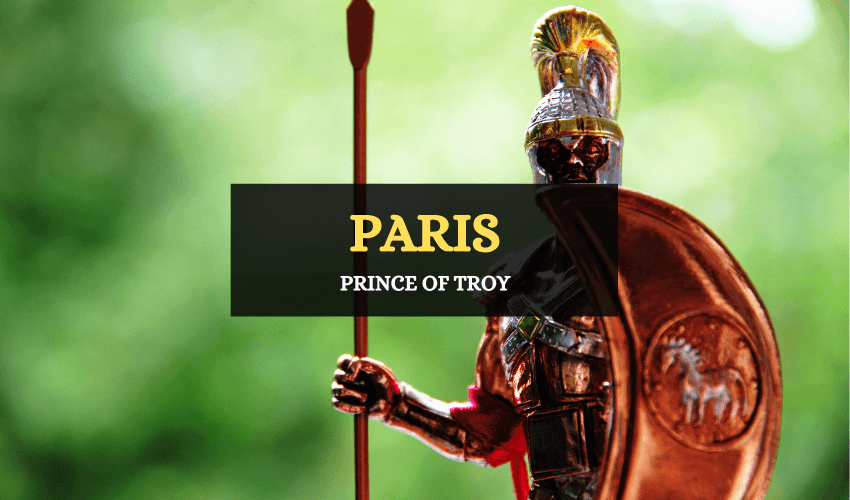
Table of Contents
A minor Greek goddess of the pantheon, Harmonia is famous for marrying Cadmus, a mortal hero and the first king and founder of the city of Thebes. Harmonia was also the owner of a famous cursed necklace that brought disaster to generations of mortals associated with Thebes. Here’s a look at her story.
Who Was Harmonia?
Harmonia’s story begins with the illicit love affair between the gods Ares and Aphrodite. Although Aphrodite was married to Hephaestus, god of crafts, she wasn’t loyal to him and had many affairs with mortals and gods. One of these was with Ares, the god of war. She gave birth to Harmonia as a result of her Tryst with Ares.
Harmonia was the goddess of harmony who brought peace and harmony to the lives of mortals, especially when it came to marital arrangements. However, her role as a goddess is secondary to her role as wife of the Greek hero Cadmus.
In lesser known renditions of the story, Harmonia is said to be the daughter of Electra and Zeus, born on an island called Samothrace, but this version is hardly ever alluded to.
The Cursed Necklace of Harmonia
The most popular story involving Harmonia relates to the cursed necklace that was gifted to her on her wedding day.
Harmonia was given to Cadmus in marriage by Zeus, the god of thunder, after Cadmus founded the city of Thebes. The wedding was a grand event, with gods and mortals attending and the Muses singing at the banquet. The couple received numerous gifts including a spear from Ares, a sceptre given by Hermes and a throne from Hera. Of all the gifts, the robe and the necklace gifted to Harmonia by her new husband Cadmus were the most important wedding gifts of all.
According to the myths, the necklace was crafted by Hephaestus. It was a highly intricate piece, featuring many jewels and two intertwined snakes. However, because Hephaestus was still angry with Aphrodite for her infidelity, he cursed both the necklace and the robe so that they would bring misfortune to anyone who possessed them.
Harmonia’s necklace was inherited by her descendants, but it brought bad luck to all of them. It fell into the hands of several people who all perished in one way or another until it was finally offered to the Temple of Athena to stop any more misfortunes.
However, from Athena’s temple, the necklace was stolen by Phayllus who gave it to his lover. Her son went insane and set fire to their home, killing everyone in it. This is the last account of the Necklace of Harmonia and no one knows exactly what happened to it after this final incident.
Harmonia and Cadmus
Cadmus and Harmonia lived in Cadmeia, the citadel of Thebes, and had several children including Ino, Semele and Polydorus. However, Thebes soon suffered a period of unrest and conflict.
Harmonia and Cadmus left the city and sought shelter in northern Greece, where they established a new kingdom by unifying several tribes. Harmonia and Cadmus had another son, Illyrius, after whom the tribal group would be named – Illyria. They lived in peace until Cadmus was turned into a serpent.
There are two versions of the punishment. The first states that Harmonia and Cadmus were turned into snakes after they died from natural causes. According to the second version, Cadmus angered Ares, who turned him into a large black snake. Harmonia then pleaded that Ares turn her into a snake as well, so that she could join her husband.
In both versions of the story, Zeus saved Harmonia and Cadmus by taking them to the Elysian Fields (the Islands of the Blessed) where they could reside together for eternity.
Harmonia’s Symbols and Roman Influence
In Roman mythology, Harmonia is worshipped as Concordia, the goddess of ‘agreement’ or ‘concord’. She has many temples in Rome, the most important and oldest one located at Via Sacra.
Harmonia is often depicted on coins with an olive branch in her right hand and a cornucopia in her left. She soothes discord and strife and presides over marital harmony and the harmonious actions of the soldiers in war.
In Brief
One of the minor goddesses, Harmonia herself didn’t play a significant role in Greek mythology and is known mainly in relation to her role as Cadmus’ wife. As goddess of harmony, she was worshipped for peaceful and harmonious marriages.








